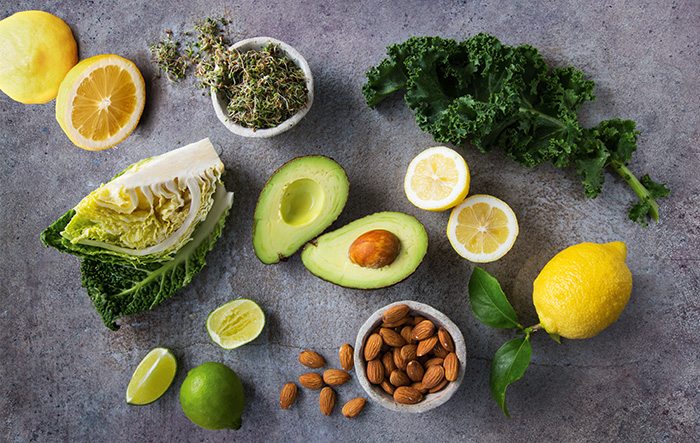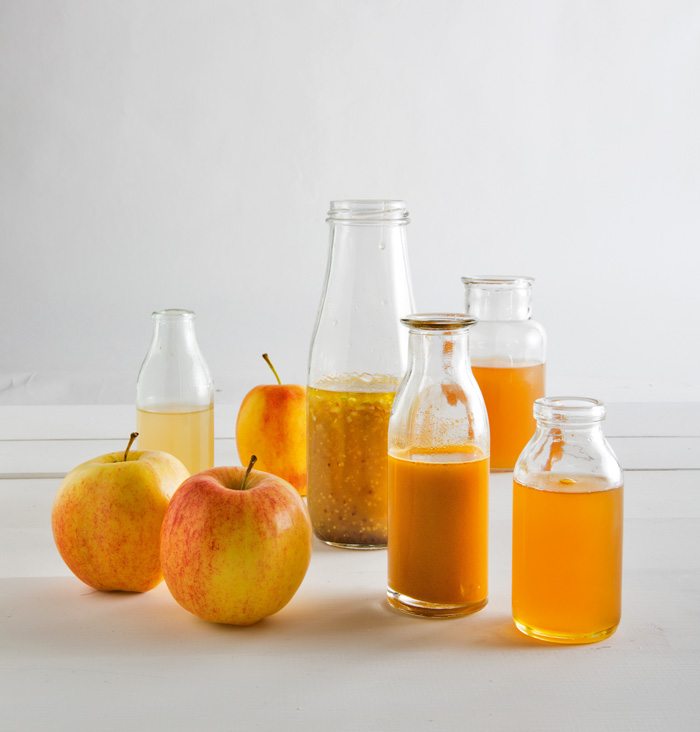The human body is constantly working to maintain balance. This is because it works best when functioning within certain parameters. Body temperature, for example, is ideally maintained at 37˚C. Perhaps lesser known is the requirement for blood to maintain a pH (that is, potential hydrogen) level of around 7.35 to 7.45. The basis of this measurement is whether the pH is more alkaline or acidic, with 7 being neutral.
In the early 1900s, biochemist and Nobel Prize winner Dr Otto Warburg made the discovery that if our blood cannot absorb enough oxygen we get sick, suggesting that low-oxygen and high acidic environments could lead to cancer – a theory that people still believe today, even though research has a long way to go before it’s fully understood how cancer works.
When it comes to our blood, pH can be affected by stress, toxic overload, immune reactions and any process that essentially deprives the cells of oxygen and other nutrients. Ensuring you have a healthy, balanced diet can help to mitigate all these factors, as it is what we eat that provides the nutrients that are distributed throughout our body.
The foods we eat are broken down so they can easily be absorbed; it is the way the foods are broken down and the subsequent chemical compound produced that determines whether the food is alkalising or acidic to our blood.
Foods such as lemons are acidic in nature, due to the citric acid content. However once digested, the end product is an alkalising compound. Should that end product of a digested food contain more sodium, potassium or calcium, it is considered an alkaline food. Should it contain more sulphur, phosphate or chloride, it is considered an acid-forming food. Cow’s milk, although alkaline in nature, once digested has a very acidic effect.
Foods such as animal meats, caffeine, wine, eggs and dairy are all acid-forming foods, as is sugar, white flours and many grains. Artificial sweeteners also produce an acidic environment.
When the cellular waste created through this process is acidic it is released into the blood for elimination from the lungs in the form of carbon dioxide and from the kidneys via urine. This is how the body regulates the acid level so that it doesn’t become too concentrated.
The acidic nature of a food can be changed so that it is more palatable to our bodies. For example, soaking mildly acid-forming foods such as whole grains and legumes before cooking, improves alkalinity by encouraging them to sprout. Chewing is another alkaline promoting process. Chewing complex carbohydrates such as grains and legumes will improve their alkalinity. The body will always do its best to maintain balance. If something is out of kilter, it draws upon alkalising mineral reserves for blood to return to an alkalised state. Calcium, magnesium, potassium and sodium are all alkalising minerals as they have the ability to attract hydrogen ions. In some instances, for order to be restored and to bring blood pH to optimal levels, calcium may be pulled from bones while potassium and magnesium may be taken away from muscles. As a result the body’s supply of these minerals may be depleted, contributing to related disease such as osteoporosis.
So, even though our bodies are good at maintaining the status quo, eating a diet rich in plant-based sources of minerals can help it along the way.
Calcium
Plant-based calcium-rich foods are a must in your shopping trolley. Dairy foods also provide calcium, however, their overall impact on the system is actually acidifying so adding plant-based sources is useful. Sesame seeds (you can eat them whole or make into tahini paste), broccoli, bok choy and almonds are all alkalising sources of calcium.
Magnesium
This alkalising mineral is used in more than 300 processes in the body. It is understandable then, that the body has a high requirement for it on a daily basis. Magnesium is available in all leafy green vegetables, so include them in every meal to balance the pH of that meal.
Potassium
A multifaceted mineral, potassium is required for many functions, including contracting the heart muscle. Consuming adequate amounts through diet from sources such as avocados and bananas will help to maintain blood pH while keeping stores available for all other vital functions.
Cabbage
Cabbage provides an array of nutrients including vitamin K, B6 and C, folate, manganese, potassium and high amounts of fibre. It is an all-round cleanser that leaves the body in a more alkalised state. Juicing is highly beneficial to the digestive tract or simply steam, stir-fry or add to salads and hot pots.
Almonds
Almonds are one of the few alkalising nuts. They also contain high amounts of calcium, vitamin E and omega-3 oils, making them a great snack. Eat as
is, make into almond hummus, or chop and sprinkle over salads.
Sprouted Foods
Sprouted foods such as sprouted broccoli and mung beans are highly alkalising. In fact, the process of sprouting in general makes foods more alkalising. Grains, legumes and seeds can be easily sprouted by soaking them in water until sprouts appear. Sprinkle sprouted broccoli, mung beans or wheat grass over salads.
Lemons & Limes
Ironically these citric acid-containing fruits are one of the most alkalising of foods. Drinking lemon or lime juice in warm water first thing in the morning is greatly beneficial to overall health. Replace bottled salad dressings with olive oil and lemon juice, or add a good squeeze to your steamed vegetables at night to get the full benefits of citrus fruits.
Avocados
Avocados are alkalising and nutrient dense. The oils in avocados also promote healthy metabolism while its array of nutrients such as alpha-carotene, beta-carotene, lutein and selenium all serve as major antioxidants. Add to smoothies, soups, salads, dips, raw cakes or simply enjoy on its own with a squeeze of lemon.
Kale
Although all leafy greens are alkaline forming when digested, kale is particularly high in alkaline-forming minerals such as calcium and magnesium. Try rubbing with coconut oil, sprinkling with Himalayan salt and pepper and good dash of turmeric, then bake in the oven until crunchy. A delicious and healthy snack.







